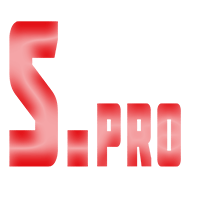The Best Cloud-Based CRM Software 2023
Having a handful of star metrics that help you track your sales numbers, team productivity, and platform usage will help you check in on the CRM’s effectiveness regularly to ensure your growing business. One of the biggest outcomes of growing business is the need to constantly adapt and scale your systems and processes. While an on-premise CRM solution is certainly also advantageous to scale, it doesn’t offer the combined benefits of scalability that a cloud CRM provides. CRMs usually offer at least a couple of pricing plans, either based on the number of users you will be onboarding or the number of features you will be requiring. This allows you to choose the pricing most suitable and viable for your growing business. Because cloud CRMs are offered at scale to users around the world, it becomes easy for the product company to offer their software as a relatively inexpensive solution.
Also, there are no hidden costs like buying additional hardware or licenses fees. What you pay is a set monthly fee for a Cloud CRM https://www.xcritical.com/blog/analytical-crm-benefits-types-of-analytical-crm/ package, which can be as low as €37. Another benefit is that this business-enhancing product certainly won’t break your bank.
What are the benefits of a CRM system?
You can stay on top of your company’s processes and find ways to improve your systems because it allows users to do all of this in one place. Salesmate provides a set of reports that enable business owners and managers to track sales agent productivity. Team leaders can listen to sales calls for training purposes by using the call recording option. This is why it is an excellent tool for both salespeople and business owners. The app displays your sales pipeline as well as sales methodology, and its Timeline View enables you to zero in on the best deals. Besides, Pipedrive is a secure app that has tens of thousands of users worldwide and offers dependable hosting as well as nightly backups.
No business likes to allocate big sums of money for a one-off purchase, and smaller, regular installments are usually preferred. Round-the-clock accessibility is by far the greatest benefit of a CRM in the cloud. Nor do you need to have a permanent IT person on site, worry about complex installations, data migration, or even upgrades – all this is done remotely for you. Gone are those days when the word “CRM” brought to mind an image of a bulky and expensive software that requires an entire team of IT experts working solely on installing and maintaining the system. Even after you choose the right CRM for you, it will only work as well as your team uses it.
Why we chose Zoho CRM
As shown in the chart by Forrester Research below, the most common reason why businesses are wary of adopting a cloud solution, also known as software-as-a-service or (SAAS), is security concerns. All the while, you’ll be unsure of whether it will adapt well to your business, address your long-term growing business needs, and whether your team will actually use it. One way to address these factors is by looping your team in and understand their current wants/needs.
Tweaks and changes to the system are made in a sandbox environment, so there’s often no need to take the entire CRM system offline for updates. Agile CRM also allows top managers to gamify the sales process and encourage sales reps to work harder by engaging in intra-team competition. There’s a custom leaderboard, collaboration opportunities between employees, and more. For a user that isn’t familiar with CRM software, it’s significantly easier to get used to this too. It’s easy-to-use and intuitive, mirroring Google’s native design for Workspace apps.
Apptivo (Top free hosted CRM solution)
There’s a good reason for Pipedrive’s popularity among businesses of all calibres – it offers a fair share of features for an affordable price. Avoid products that require manual updates, those that haven’t been https://www.xcritical.com/ updated for a long time and options where accessing your data is a hassle. A good cloud CRM will have a mobile app for iOS and Android, allowing users to access the system wherever they are, whenever they like.
ERP software has some overlap with CRM software, so it’s understandable that there’s frequent confusion regarding the difference between ERPs and CRM software. Once you’ve done your due diligence, it’s time to make a final selection. It may take a while to work through all these steps, but it’s time well spent on such an important investment. Anything above the Small Business plan is probably out of reach for an SMB company.
The Best CRM Software for Sales Teams
Zendesk Sell provides your sales reps with access to all the integrated tools available so get a full insight of a customer’s account. This way, they remain in the loop and can capitalize on obtainable opportunities. You can use it for lead scoring, activity capturing, and many more to get a detailed insight into your business. It also offers reports to help you identify and segregate your potential leads who exhibit buying behaviors.
- That is why we created this buyer’s guide to assist you in your understanding of the market and the products available.
- Customer experiences that extend beyond the sales team require everyone to be on the same page.
- You can always cancel a subscription if you find a platform isn’t meshing with your team.
- Salesforce CRM consolidates all customer data and interactions, allowing you to follow up on more leads.
- One of the most notable and popular features of this cloud-based CRM system is its Einstein Voice Assistant, which allows Salesforce users to capture notes from conversations automatically.


